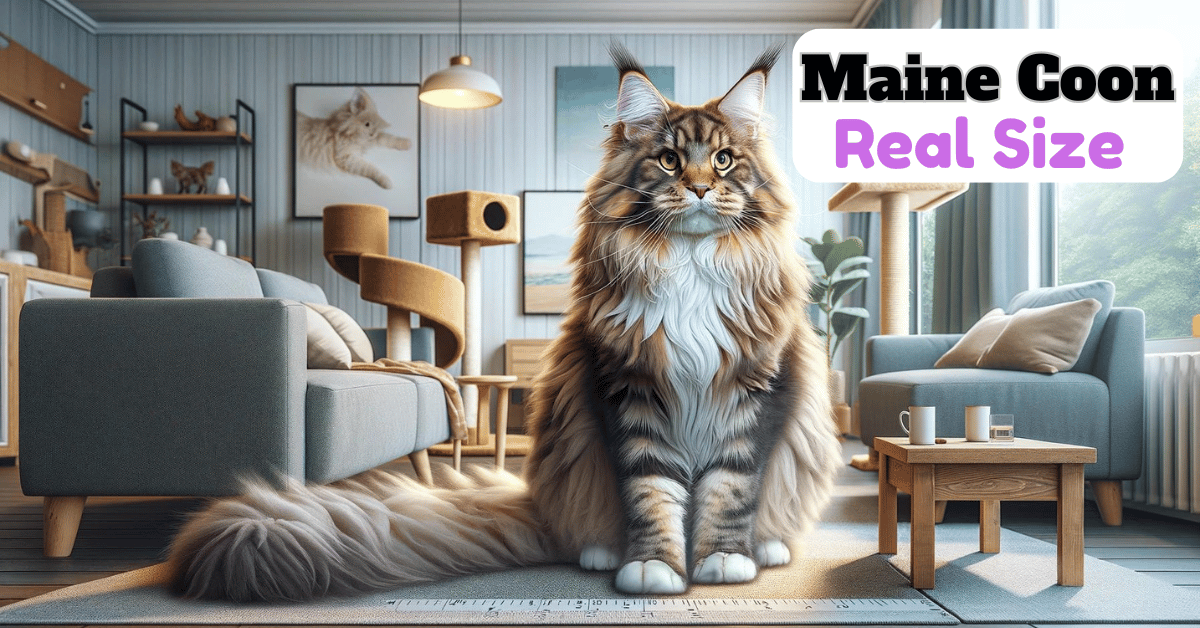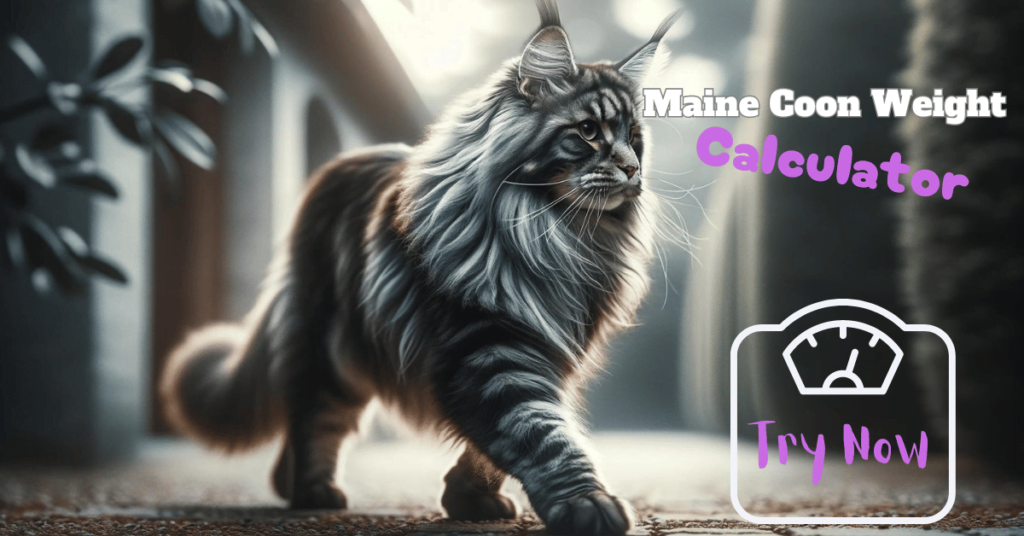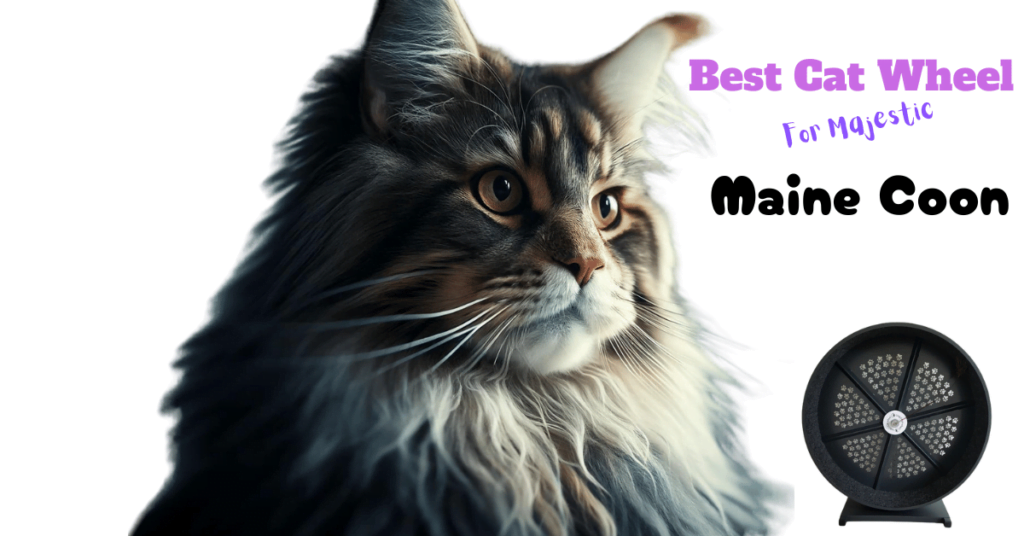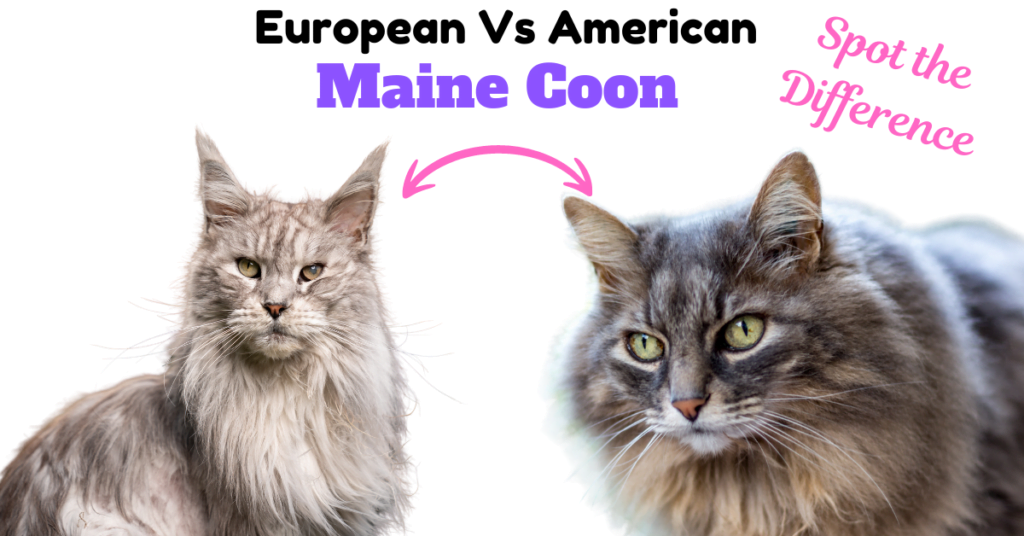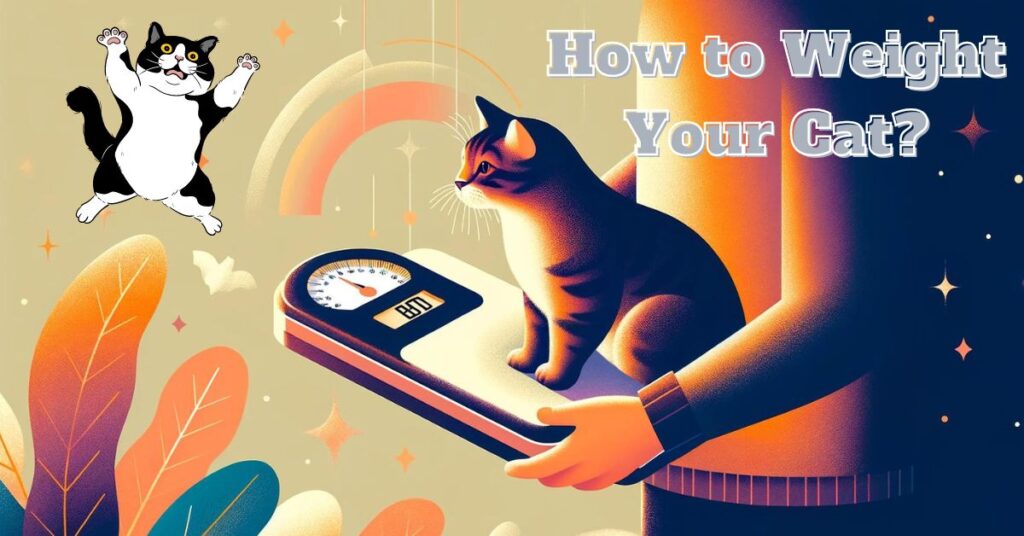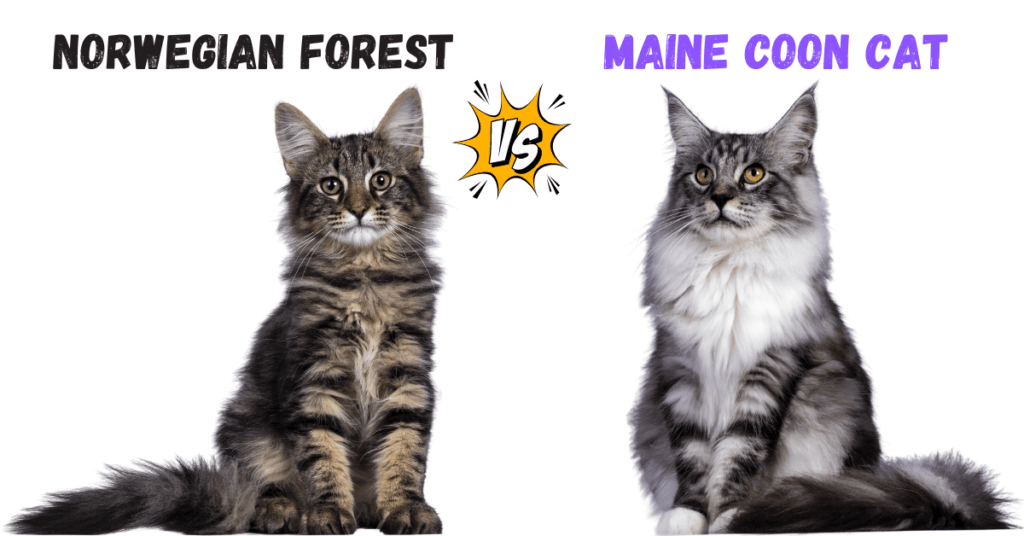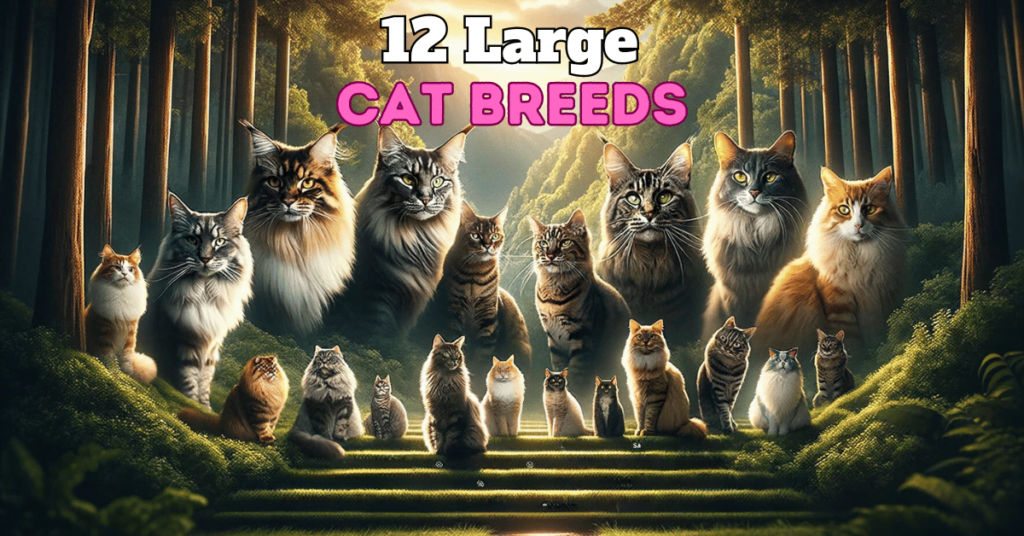This post contains affiliate links and I will be compensated if you make a purchase after clicking on my links.
Discovering the Impressive Size of Maine Coons
Maine Coons, are known for being one of the largest domesticated cat breeds. These gentle giants continue to amaze cat lovers with their substantial size and weight. This post aims to delve into the specifics of Maine Coon size, exploring their growth stages and dimensions as full-grown adults.
Growth Timeline of Maine Coon
Kitten Stage of Maine Coon
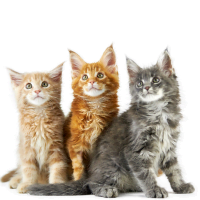
In the kitten stage, Maine Coons start small but grow rapidly. At birth, they typically weigh between 0.2 to 0.4 pounds. By the time they reach three months, they can weigh anywhere from 3 to 5 pounds and measure around 17 to 22 inches in length (including tail). Proper nutrition and care are essential during this stage to ensure healthy growth.
Adolescent Stage of Maine Coon
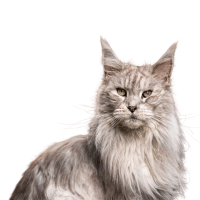
The adolescent stage, from about four months to one year, is marked by significant growth spurts. During this period, Maine Coons can gain 1 to 2 pounds per month. By their first birthday, they often weigh between 8 to 15 pounds and can measure up to 32 inches in length (including their tail). This stage is crucial for their development, as their bones and muscles continue to strengthen.
Adult Stage of Maine Coon
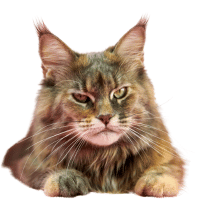
Maine Coons reach full size around four years of age. Although their growth slows down considerably after one year, they continue to develop. Adult Maine Coons can weigh between 10 to 25 pounds, with males typically being larger than females.
Their length, including the tail, can reach up to 40 inches, and they stand about 10 to 16 inches tall at the shoulder. Consistent diet and health care are key to maintaining their robust size in adulthood.
Dimensions of a Full-Grown Maine Coon
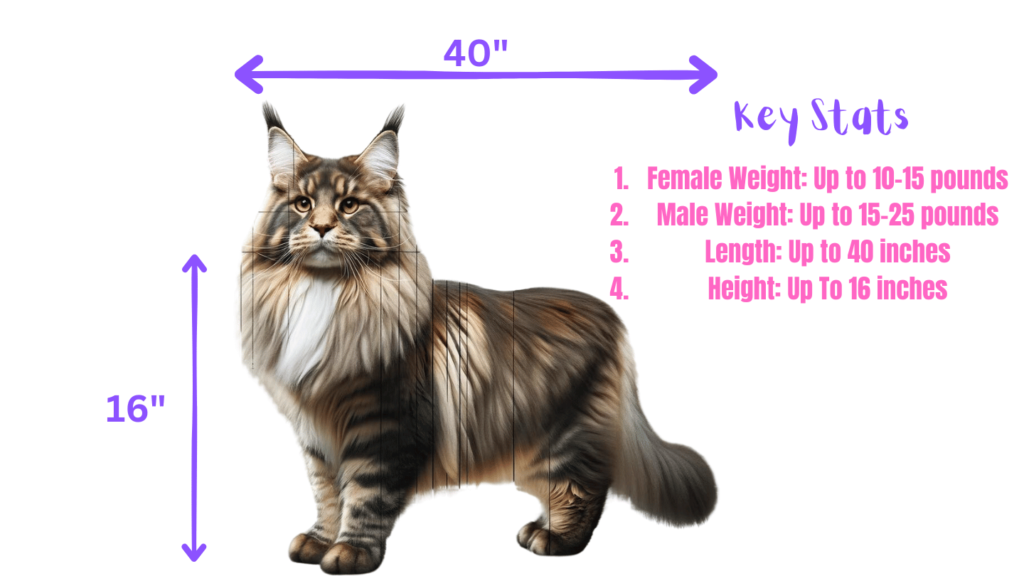
Length
A full-grown Maine Coon boasts an impressive length. On average, they measure around 25 inches from nose to the base of the tail, but with their long, bushy tail included, they can reach up to 40 inches in total length. This remarkable size is one of the breed’s most distinctive features.
Height
At the shoulder, adult Maine Coons typically stand between 10 to 16 inches tall. This height contributes to their overall imposing presence, making them appear even larger and more majestic.
Weight
The weight of a full-grown Maine Coon varies, with males generally weighing between 15 to 25 pounds and females between 10 to 15 pounds. Their substantial weight is a testament to their solid bone structure and muscular build.
Factors Influencing Size
Several factors contribute to the impressive size of Maine Coons. Understanding these can help you ensure your Maine Coon grows to its full potential.
Genetics
Genetics play a significant role in determining the size of a Maine Coon. The lineage of your cat will largely dictate how large it will grow. Cats with larger parents and grandparents are more likely to grow into larger adults themselves. Breeders often select for size to maintain the breed’s distinctive characteristics.
Diet and Nutrition
Proper nutrition is essential for healthy growth. A balanced diet rich in proteins, fats, and essential vitamins supports muscle development and overall health. High-quality cat food designed for large breeds or specifically for the Maine Coon breed can help ensure your cat gets the nutrients it needs. Always provide fresh water and consider supplements if recommended by your vet.
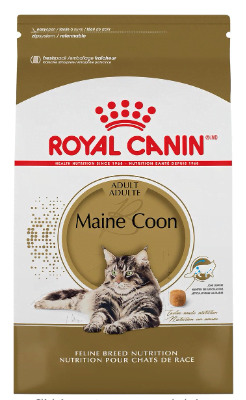
Health and Exercise
Overall health and regular exercise also impact the size and weight of your Maine Coon. Ensuring your cat gets enough physical activity helps maintain muscle tone and prevents obesity, which can obscure their true size and lead to health problems.
Regional Influences
When considering the stature of Maine Coon cats, it’s important to recognize that both European and American variants generally share the same size and weight brackets. However, subtle differences do exist, influenced by regional breeding preferences. European Maine Coons are often perceived to be slightly larger, a characteristic attributed to breeding practices that favor a more robust appearance.
Measuring Your Maine Coon
Accurately measuring your Maine Coon can help you track its growth and ensure it remains healthy. Here are some tips:
Measuring the Length of a Maine Coon
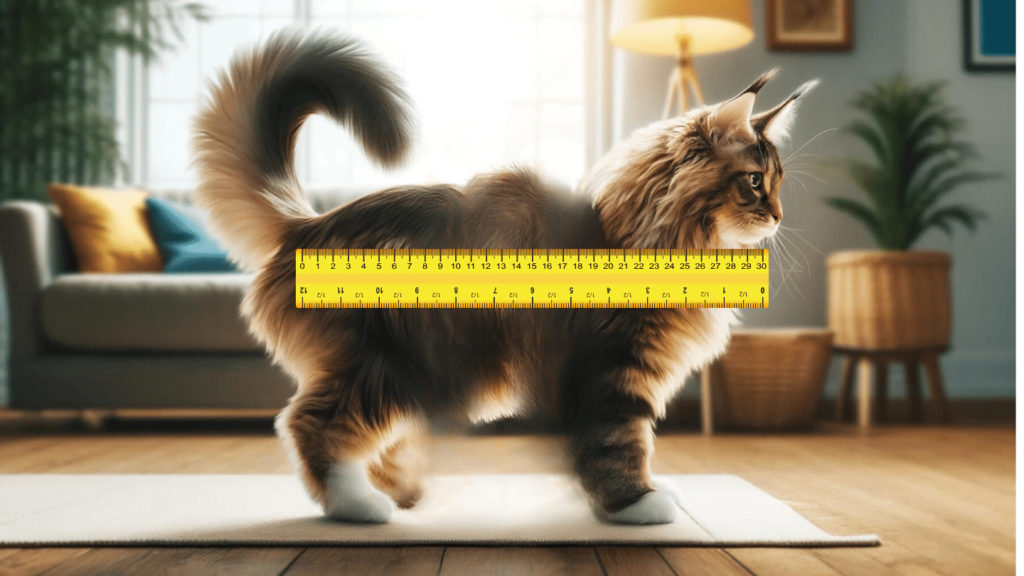
To measure the length of your Maine Coon, have it stand on all fours and use a measuring tape from the tip of the nose to the base of the tail. For total length, include the tail in your measurement.
Measuring the Height of a Maine Coon
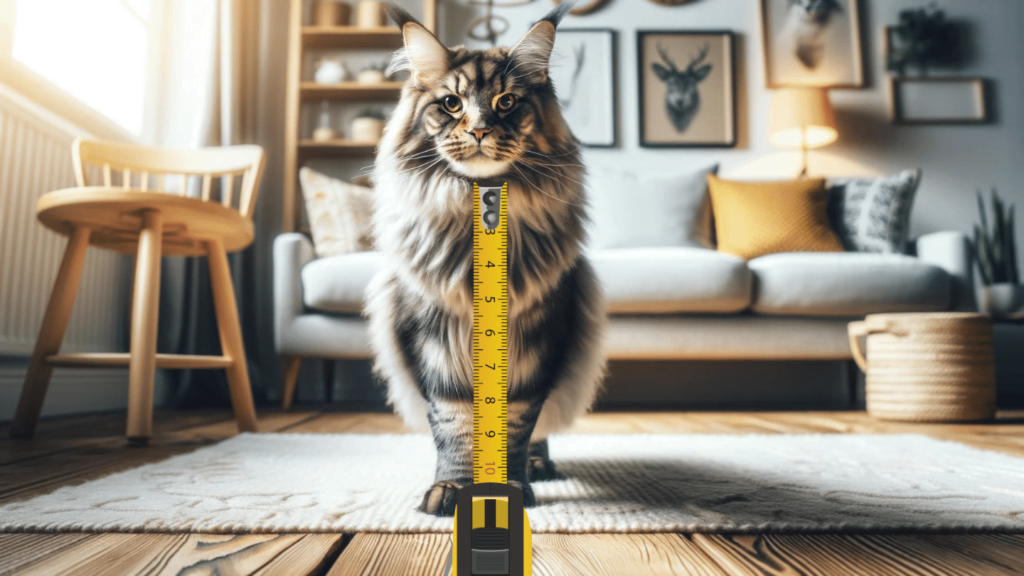
Measure the height by having your cat stand and measure from the ground to the top of its shoulder blades. This gives you an idea of how tall your cat stands.
Weighing Your Maine Coon
Weigh your Maine Coon regularly using a pet scale. If you don’t have one, weigh yourself first, then weigh yourself again while holding your cat, and subtract the difference. Keeping track of weight changes can alert you to any potential health issues early on.
Signs of Healthy Growth
Look for signs of healthy growth such as steady weight gain, a glossy coat, clear eyes, and active behavior. If your Maine Coon is eating well, playing actively, and has regular vet check-ups with no health concerns, it is likely growing as expected.
Size and Personality
The impressive size of Maine Coons is often matched by their equally grand personalities. These gentle giants are known for their friendly and sociable nature, making them excellent companions for families and individuals alike.
Correlation Between Size and Nature
Maine Coons are often described as “dog-like” due to their friendly and affectionate demeanor. Their large size contributes to this perception, as they exude a sense of calm and stability. Unlike some smaller breeds that can be more skittish, Maine Coons are typically confident and relaxed, which can be attributed to their robust build.
Behavior and Interaction
Their size also influences their behavior and interactions. Maine Coons are known to be gentle and playful, often enjoying interactive playtime with their human companions. Their large size makes them less prone to the high-energy antics of smaller cats, leading to more controlled and deliberate movements. They are also known for getting along well with other pets, including dogs, due to their laid-back and friendly nature.
Caring for a Large Cat
Owning a large cat like a Maine Coon comes with specific requirements to ensure their well-being and comfort.
Space Requirements
Maine Coons need ample space to move around comfortably. While they adapt well to indoor living, providing them with plenty of room to stretch, climb, and explore is essential. Large cat trees, window perches, and open spaces can help keep them active and engaged.
Furniture and Accessories
Due to their size, Maine Coons require sturdy furniture and accessories. Invest in heavy-duty scratching posts, robust cat trees, and spacious litter boxes. Regular-sized items may not suffice, so look for products specifically designed for larger breeds to ensure durability and comfort.
Health Considerations
Maine Coons are generally healthy, but their size can predispose them to certain health issues. Joint problems like hip dysplasia and arthritis can occur, so maintaining a healthy weight through proper diet and exercise is crucial. They may also face genetic health issues that need monitoring.
Fortunately, many environmental and lifestyle factors, such as regular exercise and a safe, stimulating living space, can be managed to help prevent or mitigate some health problems.
Fun Facts and Records
Maine Coons are not only impressive in size but also in their intriguing history and records.
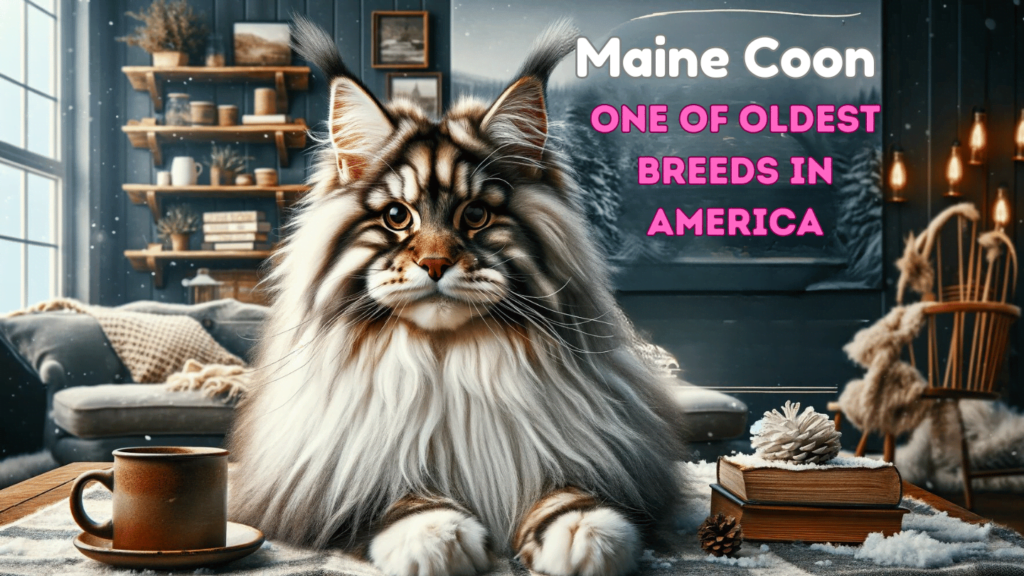
Interesting Trivia
- Maine Coons are one of the oldest natural breeds in North America.
- They have tufted ears and paws, adaptations for harsh winter climates.
- Their thick, water-repellent fur helps them stay dry and warm in snowy conditions.
Record-Holding Maine Coons
- The longest Maine Coon on record, named Stewie, measured 48.5 inches from nose to tail.
- Another Maine Coon, named Barivel, held the record for the world’s longest domestic cat before Stewie, measuring about 47.2 inches.
- These record-holding Maine Coons showcase their extraordinary potential size, further cementing their status as the titans of the feline world.
Comparison with Other Cat Breeds
When it comes to size, Maine Coons truly stand out among domestic cats, but how do they compare to other large breeds? Let’s take a look at some comparisons to understand their unique stature.
Norwegian Forest Cat
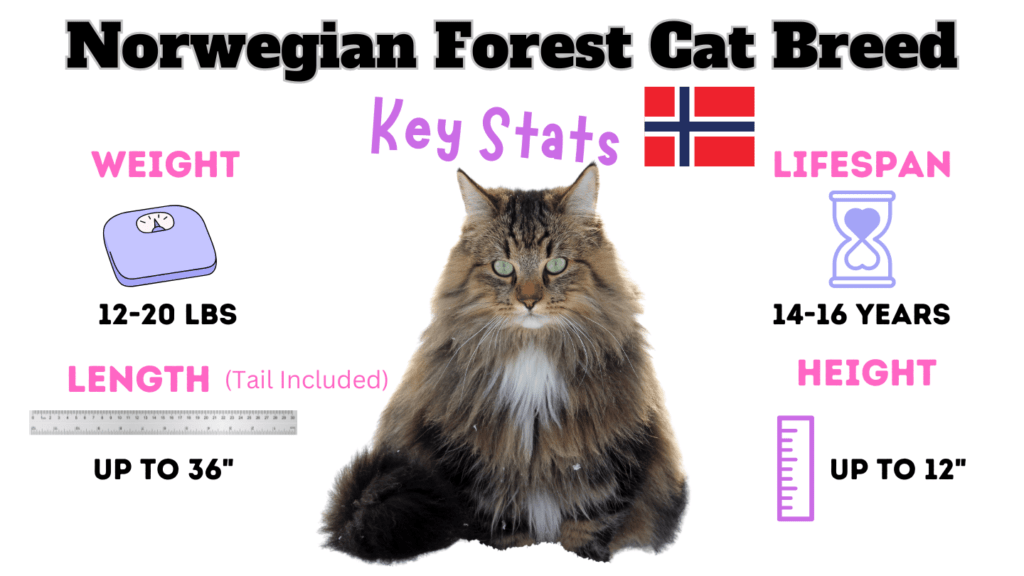
The Norwegian Forest Cat is another large breed known for its impressive size. These cats typically weigh between 13 and 20 pounds for males and 12 and 15 pounds for females, making them slightly smaller on average than Maine Coons.
In terms of length, Norwegian Forest Cats can measure up to 36 inches, including their tail, which is a bit shorter than that of a Maine Coon. While both breeds have thick, water-resistant fur, Maine Coons often have a more robust and muscular build.
Ragdoll Cats
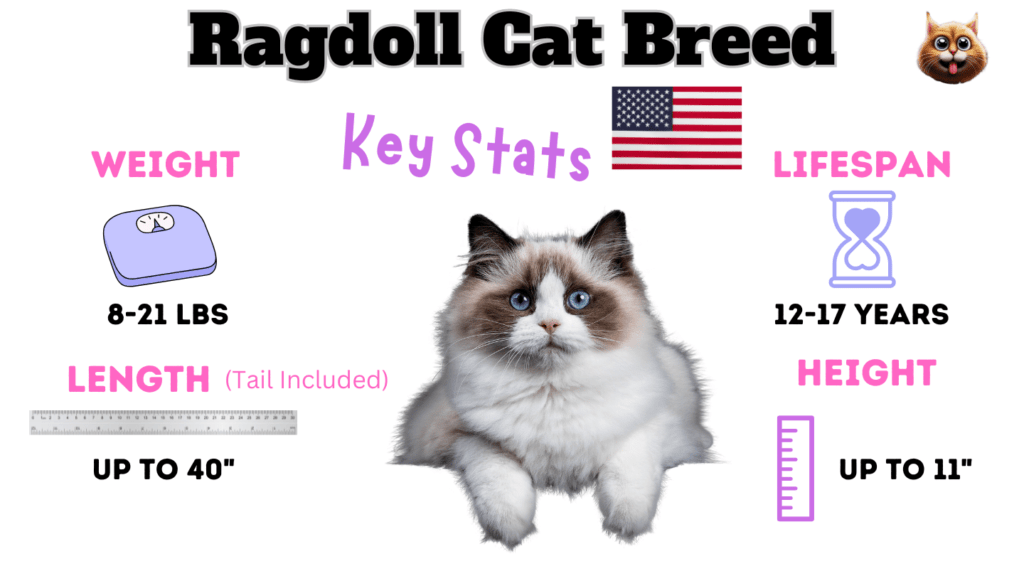
Ragdolls are known for their large size and striking blue eyes. Male Ragdolls usually weigh between 15 to 21 pounds, while females range from 8 to 15 pounds.
Their body length, including the tail, averages around 35 to 40 inches. Although Ragdolls are comparable to Maine Coons in weight and size, they typically have a more laid-back and less athletic build.
Recap of Maine Coon Size Insights
Maine Coons are truly remarkable for their impressive size and charming personalities. Their unique growth stages and dimensions set them apart from other cat breeds, making them a fascinating addition to any home.
While the size guidelines provided here are helpful, remember that they are only guidelines. If your Maine Coon’s size or the weight calculated using our Maine Coon Weight Calculator deviates significantly from these standards, it’s important to take action and speak to a vet. Ensuring their growth is healthy and in line with expectations helps avoid any surprises.
Meet Sean, a fintech whiz with a penchant for pet purrs and blockchain buzz. After a decade of fintech feats, Sean’s tech talents leaped from ledger lines to litter lines, driven by a passion for pets and a vision for a more connected pet care community. With three critter companions as co-pilots, Sean launched this blog to share a treasury of pet-friendly tech tips and tales.

